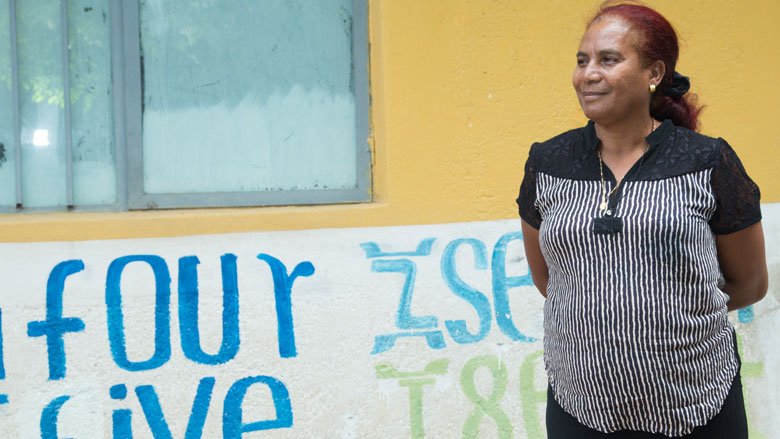Meseret, a women entrepreneur, knows a thing or two about promoting growth. As the owner of 3M-A private elementary school in the Ethiopian city of Dire Dawa, she not only fosters the development of young minds but also oversees the expansion of the school itself.
What started out as a single kindergarten class in 2009, with 30 students and three employees, has now grown into a school serving children up to Grade 8, with 462 students and 31 staff. Meseret says ��A key ingredient in my success is the . The liquidity facility and training from WEDP was a critical success factor for my business expansion��.
With financing of $150 million from the World Bank and co-financing of $100 million from other development partners (Canada, the European Investment Bank, Italy, Japan, and the UK��s Foreign and Commonwealth Development Office) WEDP provides women access to business loans through a network of banks and microfinance institutions. It also offers entrepreneurship training to registered business owners across 18 Ethiopian cities.
Meseret is not alone: to date, about 24,000 women in Ethiopia have secured a loan from the WEDP network and more than 32,000 have graduated from a training program. Impact evaluation data show the average income of a WEDP client has grown by 67% and the number of employees in a firm by 58%, relative to a control group.
Adaptation to adversity
Meseret��s success is all the more impressive given the difficult environment in which she is operating. Over the past three years, Ethiopia��s women entrepreneurs have faced a perfect storm. As the environment for them changed, so did WEDP. With $100 million in additional financing from the World Bank, the project scrambled to adjust its proven model to the urgent needs of its clients.
WEDP partnered with the World Bank��s Africa Region to design and evaluate new programs to support women entrepreneurs during a time of upheaval. It added a $5 million rescue facility for viable women entrepreneurs adversely affected by COVID-19, a $10 million innovative finance window, and a range of new services for its clients.
The rescue facility proved a crucial addition to WEDP, providing relief to more than 2,600 businesswomen affected by the fallout from COVID-19. The facility also gave financial institutions an incentive to extend the maturity of loans, introduce grace periods, extend interest holidays, or otherwise introduce concessional terms.
A separate, wholesale component granted the financial institutions themselves a six-month interest holiday from the main line of credit. With the pandemic largely receding, remaining funds from the rescue facility are now being redeployed to northern Ethiopia for the restructuring of loans held by women entrepreneurs whose businesses have been badly affected by the conflict in the north.
Apps to the Rescue
Focusing on innovative financial products is another priority. At one financial institution, entrepreneurs who lack collateral �C an obstacle predominantly faced by women �C can instead qualify for loans through a psychometric test that is delivered via mobile application. A Gender Innovation Lab study found that entrepreneurs who borrowed through this mechanism at the beginning of the pandemic were significantly more likely to remain in business �C and profitable! �C two years later.
Following the successful pilot, the psychometric assessment is now being scaled up to more financial institutions. To circumvent the need for high collateral, new innovative products and instruments, such as repeat loan automation, cash flow-based financing, and revenue-based financing are also being introduced.
WEDP has adapted its entrepreneurship training as well, developing digital alternatives to classroom-based courses. In partnership with the US based edtech startup, Quantic, WEDP developed a learning app that combines world-class MBA content in Amharic with case studies tailored to women entrepreneurs in Ethiopia.
Another collaboration, this time with the behavioral science team at a US non-profit, , has yielded a financial ��rules of thumb�� training that was delivered to women��s phones and has completion rates well above those for in-person training.
These innovative channels for training delivery address the time constraints faced by many women who often struggle to reconcile business and family obligations. They make access to business knowledge fully remote, easier to scale, and more resilient in times of disruption.
Over the years, WEDP has become a trusted partner for many female business owners. And, as Ethiopia continues to develop, WEDP continues evolving to address new challenges to growth �Cfor businesswomen like Meseret �C and for the next generation of entrepreneurs she helps raise.

